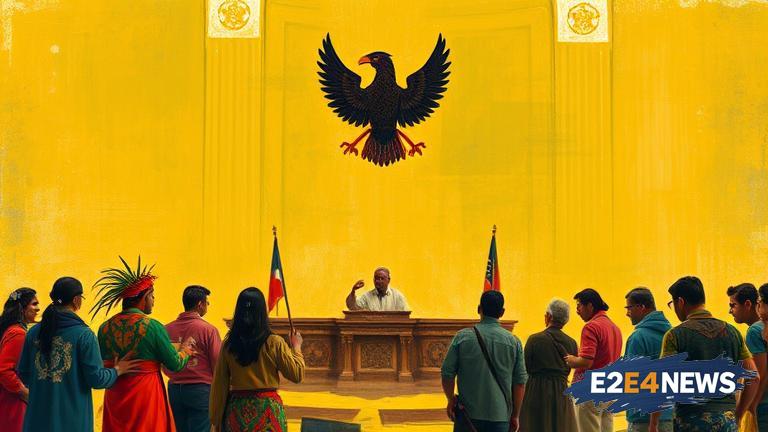In a significant move, indigenous groups in Chile have approached the courts to seek justice and protection for their rights and lands. The groups, which include the Mapuche people, have been fighting for their rights for decades. They claim that the Chilean government has failed to recognize and protect their ancestral lands, leading to the loss of their cultural heritage and way of life. The indigenous groups are seeking legal recognition of their rights to their lands, which they claim have been taken over by private companies and the government. They are also demanding compensation for the historical injustices they have suffered. The court case is seen as a landmark moment in the struggle for indigenous rights in Chile. The indigenous groups are being supported by human rights organizations and environmental groups, who argue that the Chilean government has a responsibility to protect the rights of its indigenous peoples. The Chilean government has been criticized for its treatment of indigenous peoples, with many accusing it of ignoring their rights and ignoring their concerns. The court case is expected to be a long and complex one, with many legal and technical issues to be resolved. The indigenous groups are hopeful that the court will rule in their favor, but they are also prepared for a long and difficult fight. The case has sparked widespread interest and debate in Chile, with many people calling for greater recognition and protection of indigenous rights. The indigenous groups are not just fighting for their own rights, but also for the rights of future generations. They argue that their ancestral lands are not just important for their cultural heritage, but also for the environment and the country as a whole. The court case is seen as a test of the Chilean government’s commitment to protecting the rights of its indigenous peoples. The indigenous groups are calling on the government to take immediate action to recognize and protect their rights, and to provide compensation for the historical injustices they have suffered. The case is also being watched closely by indigenous groups and human rights organizations around the world, who see it as an important precedent for the recognition and protection of indigenous rights globally. The Chilean government has been accused of failing to implement international human rights standards, including the United Nations Declaration on the Rights of Indigenous Peoples. The indigenous groups are arguing that the government has a responsibility to implement these standards and to protect their rights. The court case is expected to have significant implications for the future of indigenous rights in Chile and beyond.
